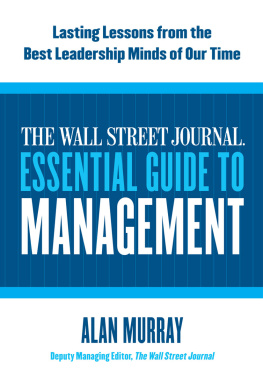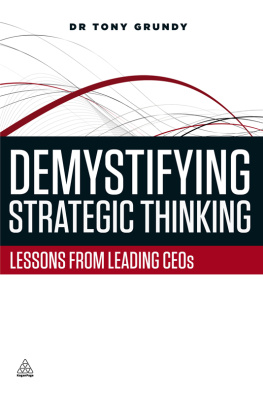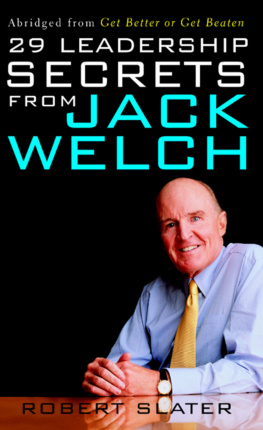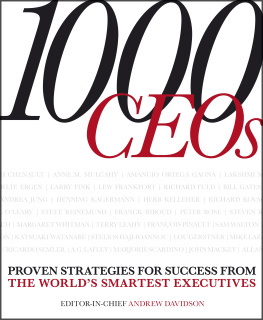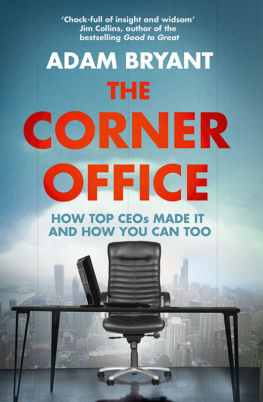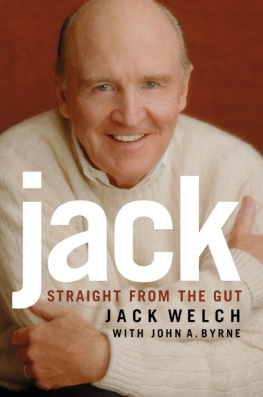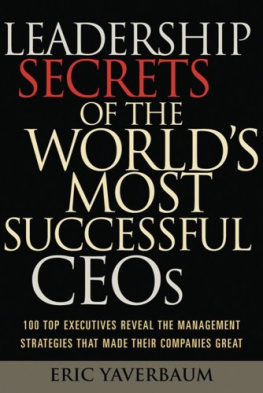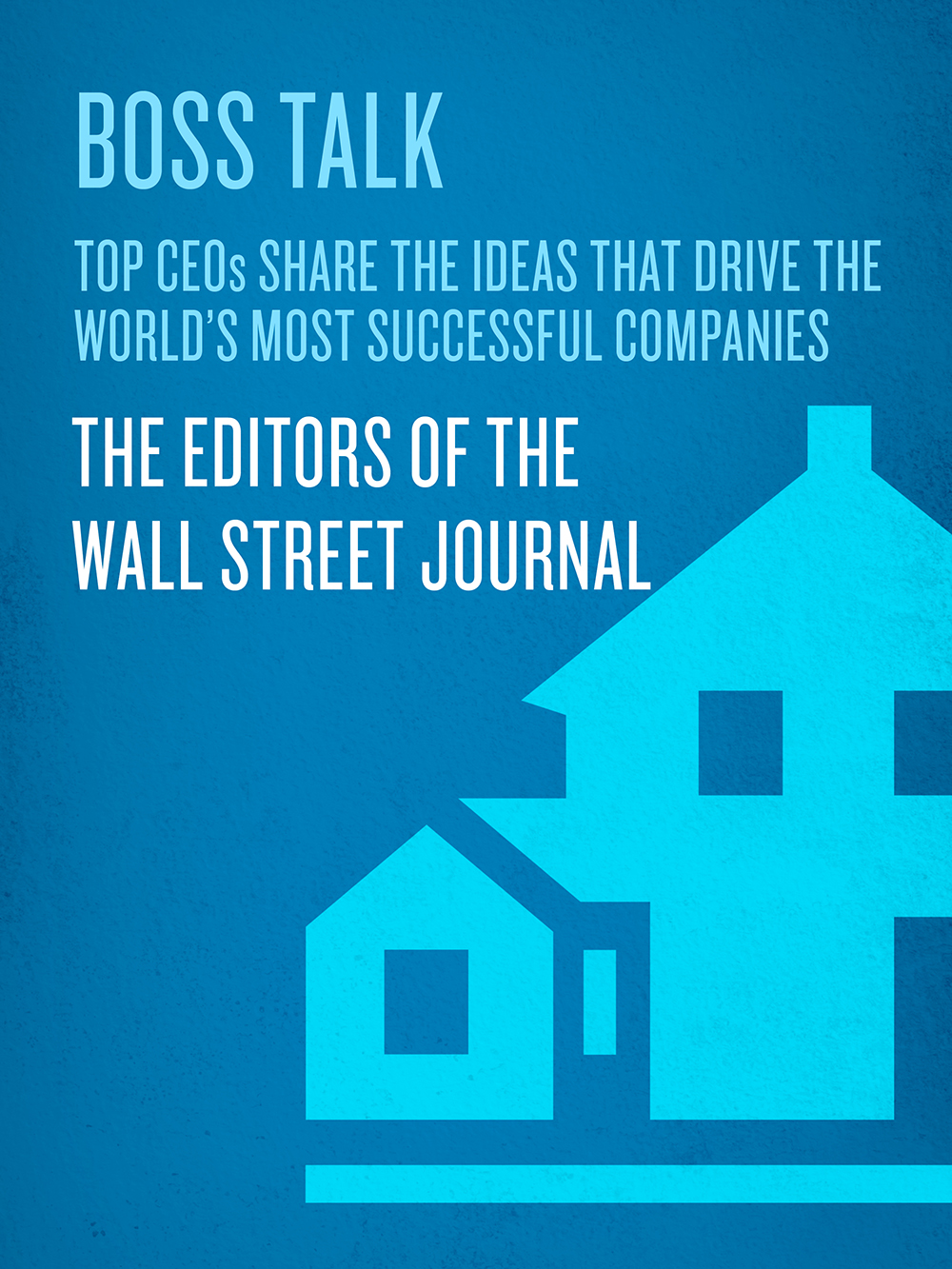
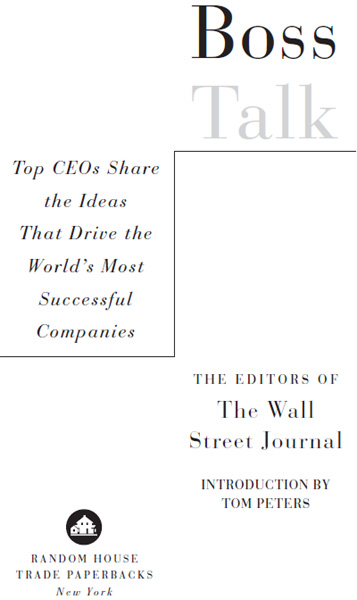
Contents
Introduction
Tom Peters
A few years back I wrote a book called The Pursuit of Wow.
Well... forget that.
Theres no wow here.
That is, this is better than wow.
Boss Talk is just that: conversations with an extraordinary set of bosses. And what they have to tell us is...
Mundane. (Read: common sense.)
Inspiring. (Read: uncommon sense.)
Hence my Highlights Tape from this remarkable book.
Consider Jack Welch. Arguably, he did better than almost anybody running a business during the last hundred years or so. Yet he tells us that his real secret is... no secret at all. Rather, its simply an abiding obsession with developing talent (an idea worthy of the best National Football League general manager). Moreover, he insistsdespite the astonishing size of GEthat his executives think of themselves as running a grocery store. Theyll instinctively make the correct decisions, he claims, if they focus on the basics of people and customers and service and innovation. Could it be that simple (hard, really, if youve ever run a grocery store)?
To some extent, yes. Thats the secret of this book: a focus onnay, obsession withthe basics, within the context of the particular enterprise.
Microsoft CEO Steve Ballmer also offers us simplicity itself. He insists that the Big Guy at Big Co. has to proffer a crystal-clear definition of where True North is. The endpoint must also be exciting enough to stir thousands to uncommon effort. Clear thought and leading proposition are the terms he uses. Its boss-as-weathervane. Then, the Big Guy must signal the staff about what really matters... and thus, by definition, what doesnt. (As a CEO friend said to me, Remember, Tom, its the To donts that really matter. Amen.)
Nice, Steve. (Andthe point of all thissuch clarity is absent in nine of ten big enterprises.)
While the market has gone bonkers on him, it would be absurd to denigrate the amazing track record that John Chambers has put together at Cisco Systems. Yes, hes developed a brilliant strategy of acquiring innovation. (Some question it. Im not one of them. I applaud.) But his secret isnt cool acquisitions. Its getting mileage out of those acquisitions, in a world where most efforts at combinationsmall and largefail, by far, to live up to their potential. Thus, from Brother Chambers we hear about... guess what... talent. (Welch redux.) In particular, we hear about developing and maintaining an energetic corporate culture in the face of incredible growthwhich excites the entrepreneurial sorts Chambers has bought/brought to the party.
Chambers also makes an impassioned plea for putting customers first. Its like the talent thing. That is, putting customers really first in every corporate decision and processmiles and miles beyond typical King Customer lip service. Note: Chambers claims hes repeatedly amazed that, upon spending time with the senior leadership of big companies, he hears literally nothing, in the space of several hours, directly about the customer. That aint Cisco. That aint Chambers.
How boring, eh? Not.
While there have been numerous hiccups along the way, Daimler Chrysler CEO Juergen Schrempp has done a better than decent job with a monstrously difficult merger. And he too offers us... ho-hum... simplicity itself.
Well, its simplicity in retrospectbut quite counterintuitive until one gives it a second, and then third, thought. Schrempp claims that he coined the phrase the danger of a deadly wish for harmony. That is, he contends that most post-merger marriages fail because everybody tries to income average, in effect, to push off the hard decisions and offer hopelessly political compromises. Schrempp also calls these all-important, make-or-break decisions digital decisions. That is, one or zero. A clear yes. Or a clear no.
And dont wobble! Get on with it! He argues persuasively that making a decision and moving forward, and seeing what happens, even if its messy, is far better than endless debate followed by mealymouthed compromise. A damn good point, Id aver.
The Schrempp Doctrine is followed by the thoughts of perhaps the most successful Merger Master of them all in recent times, Sandy Weill, who put together Citicorp and Travelers. Weill tells usagainthat success flows from moving damned fast and then getting on with the next chapter, as opposed to leaving thousands (hundreds of thousands, in his case) in the dark about whats up. Speedy and decisive decision-making, he claims, is the key to holding on to good people and getting the great mass of individuals focused on the futurerather than allowing them to wallow in the turmoil of bent relationships that inevitably accompany a merger. He also underscores another obvious point, which many others fudge on: Treating the acquired company with the utmost respect is a sine qua non of merger-integration success.
Then Novartis CEO Daniel Vasella chimes in on the topic of mergers and rapid growth. And what he gives us, in effect, is ditto Welch. Its all about developing the Very Best Talent Pool. (Obvious, yes. But worth repeating. Again, again, and then again. Which so many of these CEOs do.) Its the talent, stupid! No one ever claims not to be a people person. But few can match the obsessionand obsession is exactly the right wordof people like Vasella and Welch and Ballmer. An obsession with Talent. Which occupies most of your (very long) days.
Vasella adds, intriguingly, that when you acquire something big, you must immediately figure out how to break it up and, then, create energetic, forward-looking business units that take advantage of overall size while avoiding the sluggishness accompanying the huge complexities that invariably attend to huge organizations.
Amen, redux.
And now: more basics. But this time on the topic of brand building. Basics from someone whos most famous for creating amazing buzz. Namely, Tina Brown, currently chairman and editor in chief of Talk magazine (and formerly Turnaround Queen at Vanity Fair and TheNew Yorker). Brown gives lots of useful tips, but the one that I like best is again worthy of repeating time and time again: Theres no such thing as buzz that works... unless the product is Seriously Cool. Yes, Brown is a born buzzmeister, but a buzzmeister who first and foremost created one hell of a productsignificantly different and more energetic than what she inherited.
She also reveals a confidence that I suspect is essential to those determined to keep an enterprise, media or nonmedia, perpetually fresh. She insists shes easily bored. While that speaks to freshness, Brown paradoxically also champions consistency: I have always felt that you should be able to throw a magazine on the floor at any page, and know whose magazine it is. Whoops! Weve just been let in on the Great Secret of Brand Power: fresh and familiar at once.
Ms. Browns theme is echoed and amplified by Kevin Roberts,the chief executive of Saatchi & Saatchi. The secret of brand building is no secret at all. The advertising man says, in effect: It aint about the advertising. Its about how incredibly exciting the product is and the degree to which it works its long-term emotional appeal on us. For example, he claims that Apple is the most sensual product since the vibrator. And he chuckles about how his daughter almost strokes her new Volkswagen Beetle. Branding, then, for these two masters, is not skin deep: Its soul deep.
Next page


